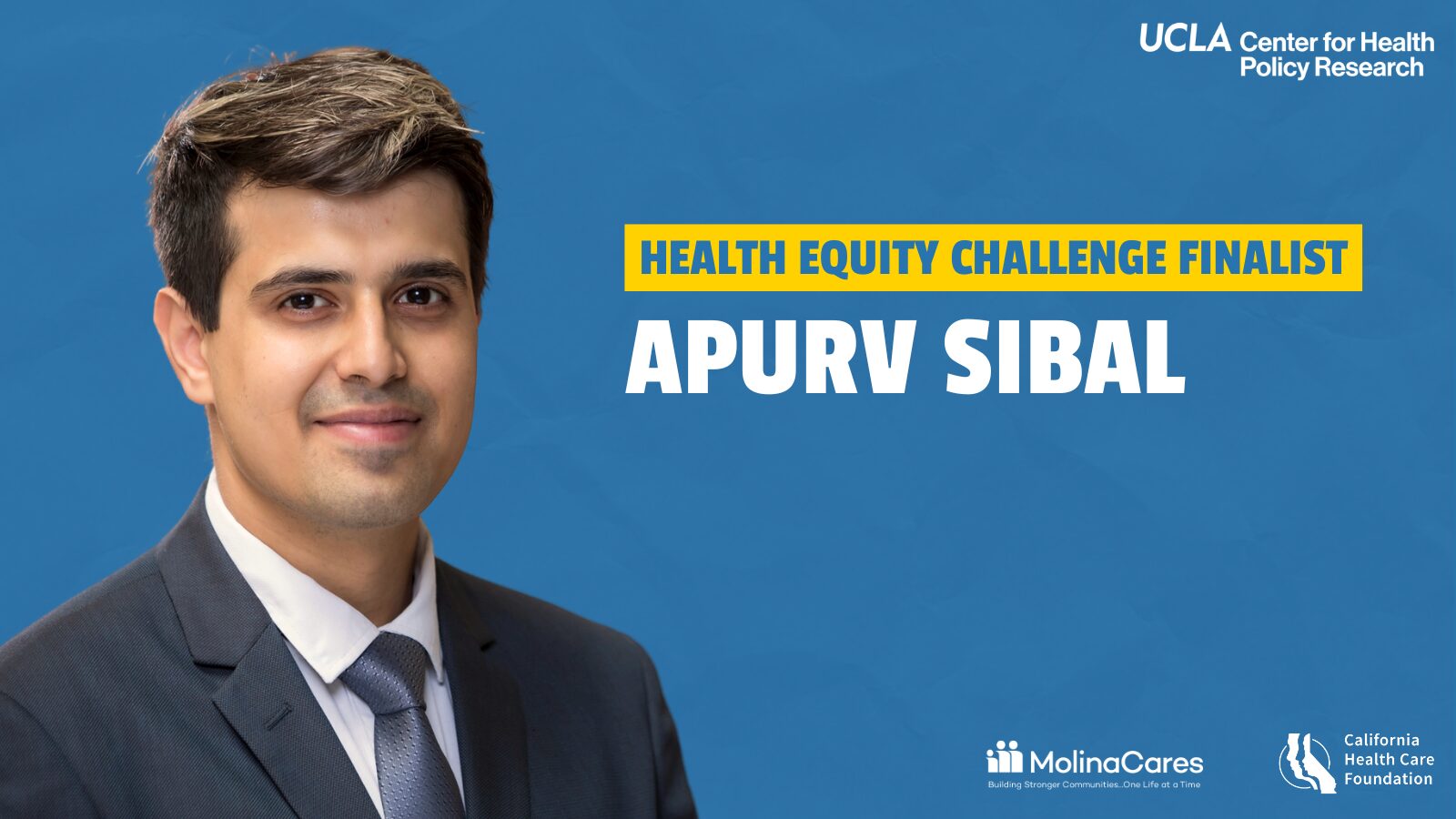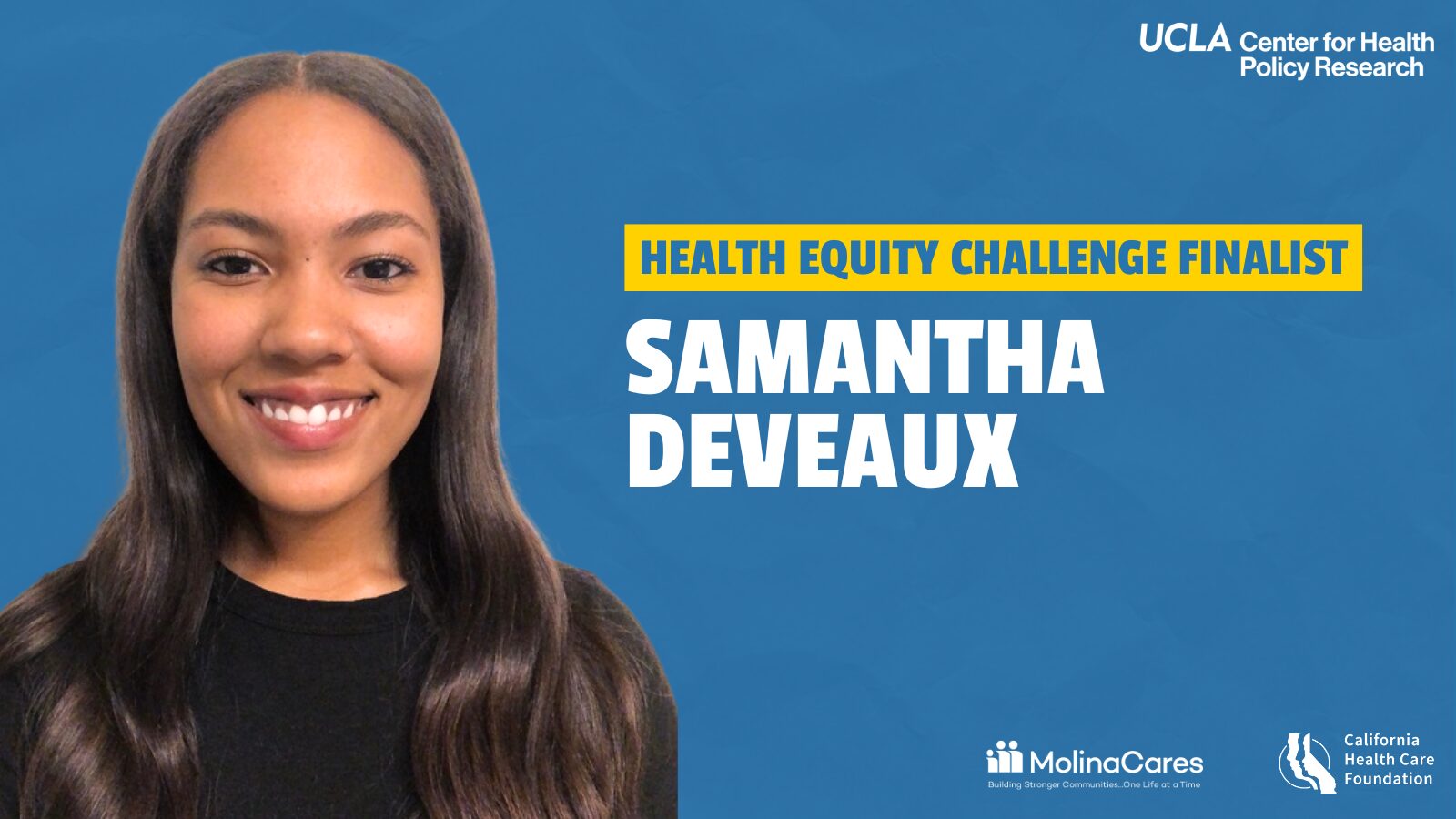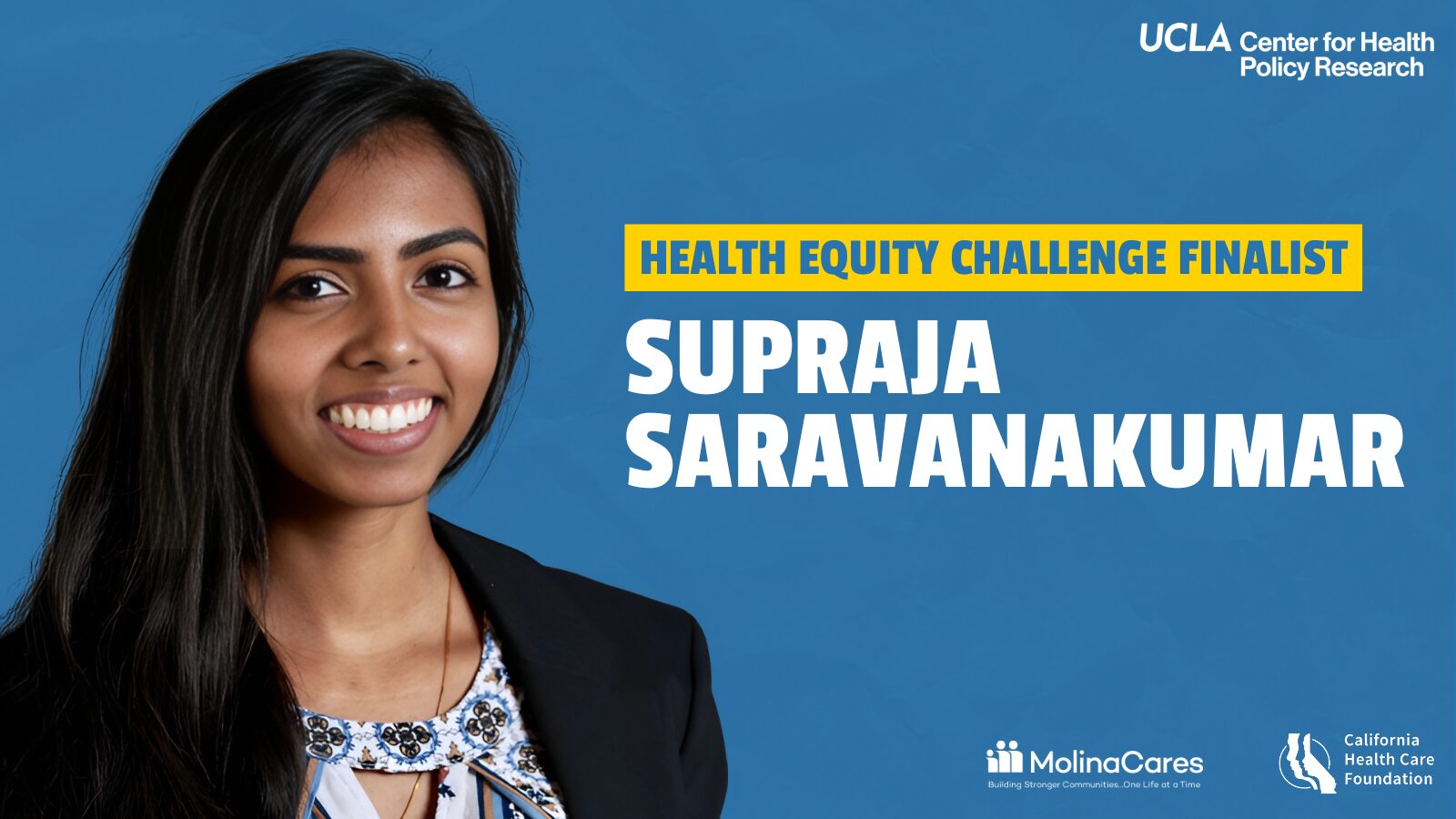Failure to inform or consent for procedures. Being mocked by a provider during labor. Unwanted sterilization. These were just some of the negative maternal health care experiences described by immigrant women in a study I worked with as a student. Particularly for Latina women, these experiences are too common: a California survey found that 1 in 5 (19%) Latina women report that they were treated poorly because of race, ethnicity, cultural background, or language during their childbirth hospital stay. Pregnancy and childbirth is already a difficult and risky time for women — they shouldn’t have to also deal with disrespect and low quality care. I asked: How can immigrant women get the respectful, high-quality care they need and deserve?
The Health Equity Challenge gave me an opportunity to address these injustices. My proposal was a multi-level intervention empowering Latina immigrant women to self-advocate for their rights to high quality maternal health care and providing feedback and targeted recommendations to facilities they attended. But, I needed a community partner.
As I developed my proposal, the Health Equity Challenge and my mentor, Dr. Candace Gragnani, helped me connect with community-based organizations, government agencies, and promotoras around Los Angeles. They gave me insight about working with pregnant Latina immigrant women, gave me suggestions about how to improve the intervention, and connected me with others working in the field. In the end, even though I couldn’t find a community partner who could implement the intervention within the Health Equity Challenge’s timeline, I developed a network of individuals and organizations that were caring, knowledgeable, experienced, and interested in future partnership.
Moving forward, there is much work to be done. Mistreatment and poor quality care remain hidden because many Latina immigrant women do not know their rights, have difficulty communicating, or fear that speaking up will negatively affect theirs or their families’ immigration processes (such as deportation or inability to gain citizenship). But the consequences of inequitable and poor care are too great to ignore: It negatively affects fetal development, contributes to preventable maternal deaths in California, and builds on a long history of reproductive injustices against Latina immigrant women. With the network I built through the Health Equity Challenge, I now have a committed community to continue the fight for health equity for pregnant Latina immigrant women.

By Michelle Nakphong
2022 Health Equity Challenge Finalist
Project: Develop a community-level patient education approach to educate immigrant women about their rights to high-quality care and empower them in their own care, and a health care systems audit and feedback approach aimed at designing a quality improvement program within the health care system.
continue reading
Related Posts
As many as 50% of blind high school students drop out of high school and COVID only exacerbated this problem.
Coming from a low-income community of color, I personally witnessed how generations of systemic racism and economic corruption have led to a powerful mistrust in the health care system.
Postpartum depression (PPD) is a silent struggle for many new mothers, but for South Asian women, cultural stigmas and generational pressures often exacerbate this already challenging condition. As a woman of color and a first-generation college graduate, I have walked a path shaped by the nuances of both my cultural heritage and my academic pursuits.



